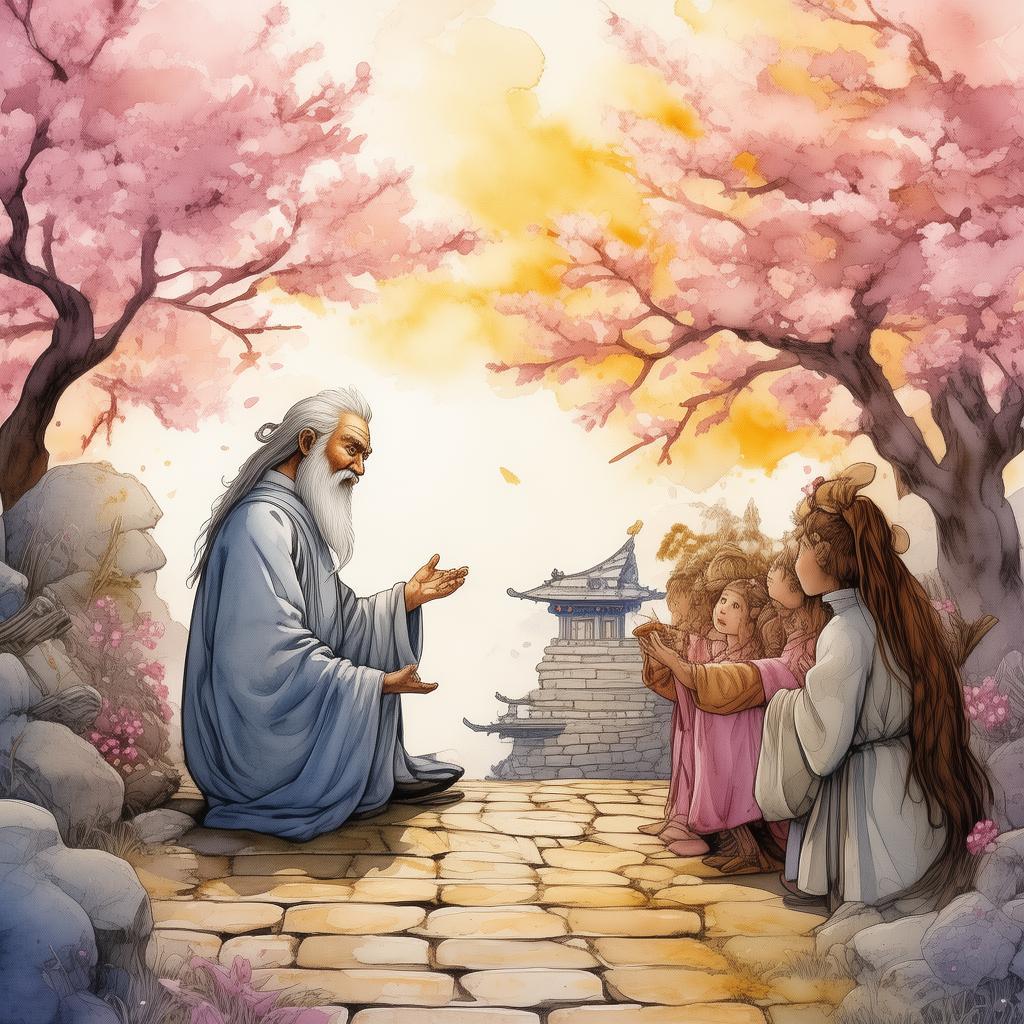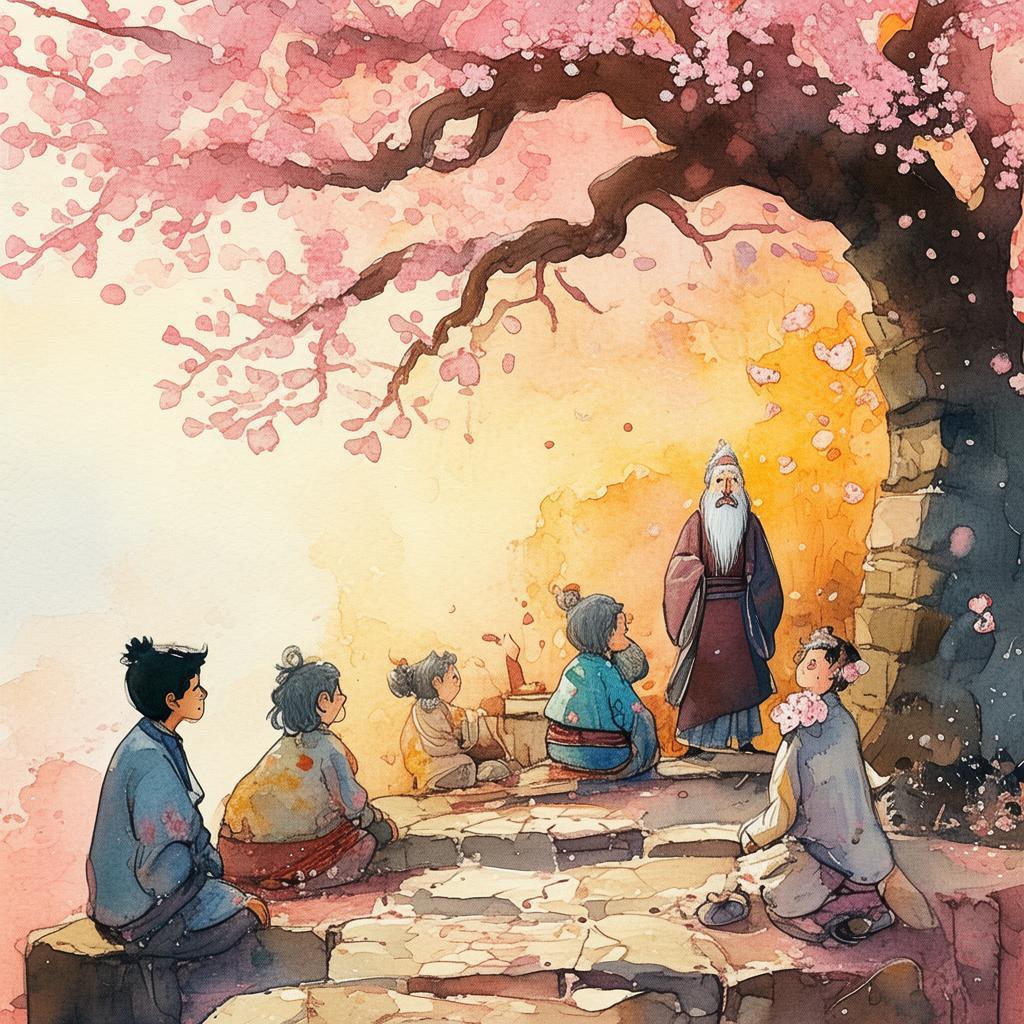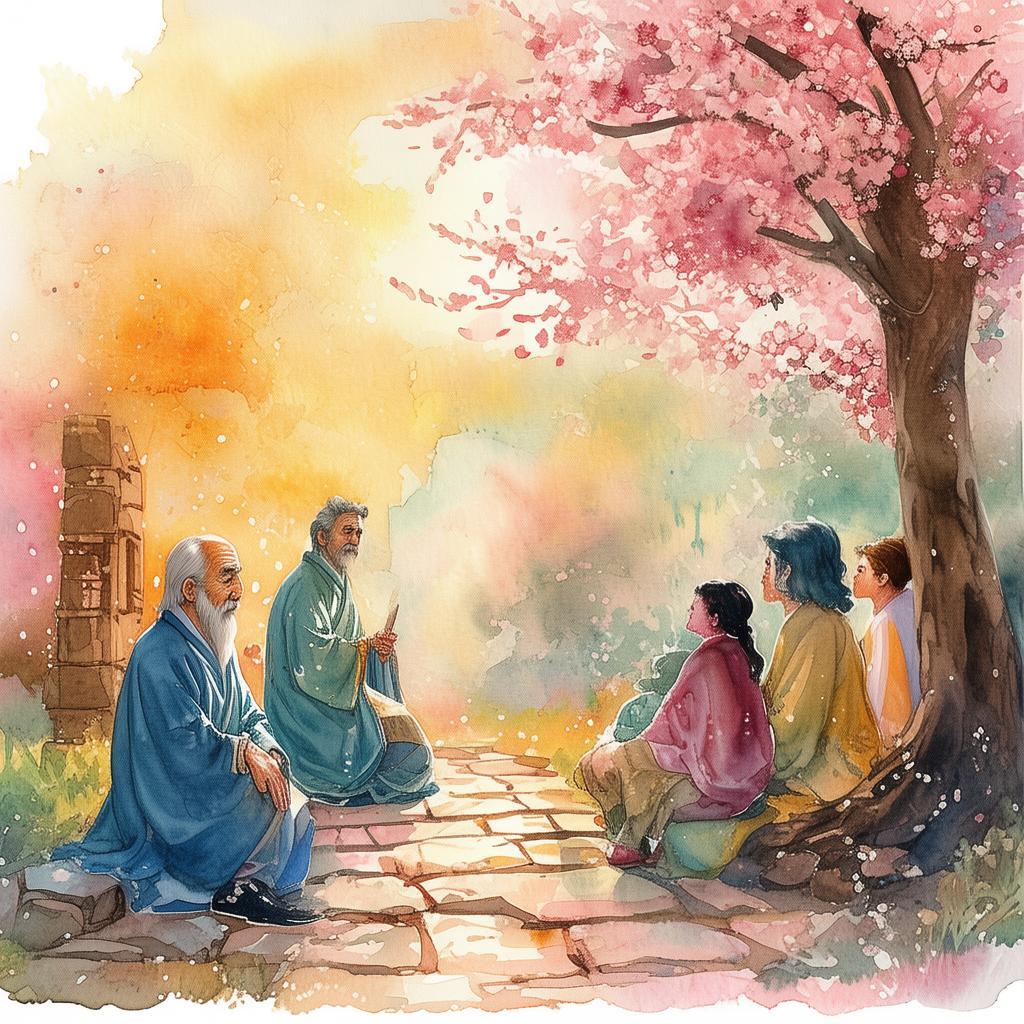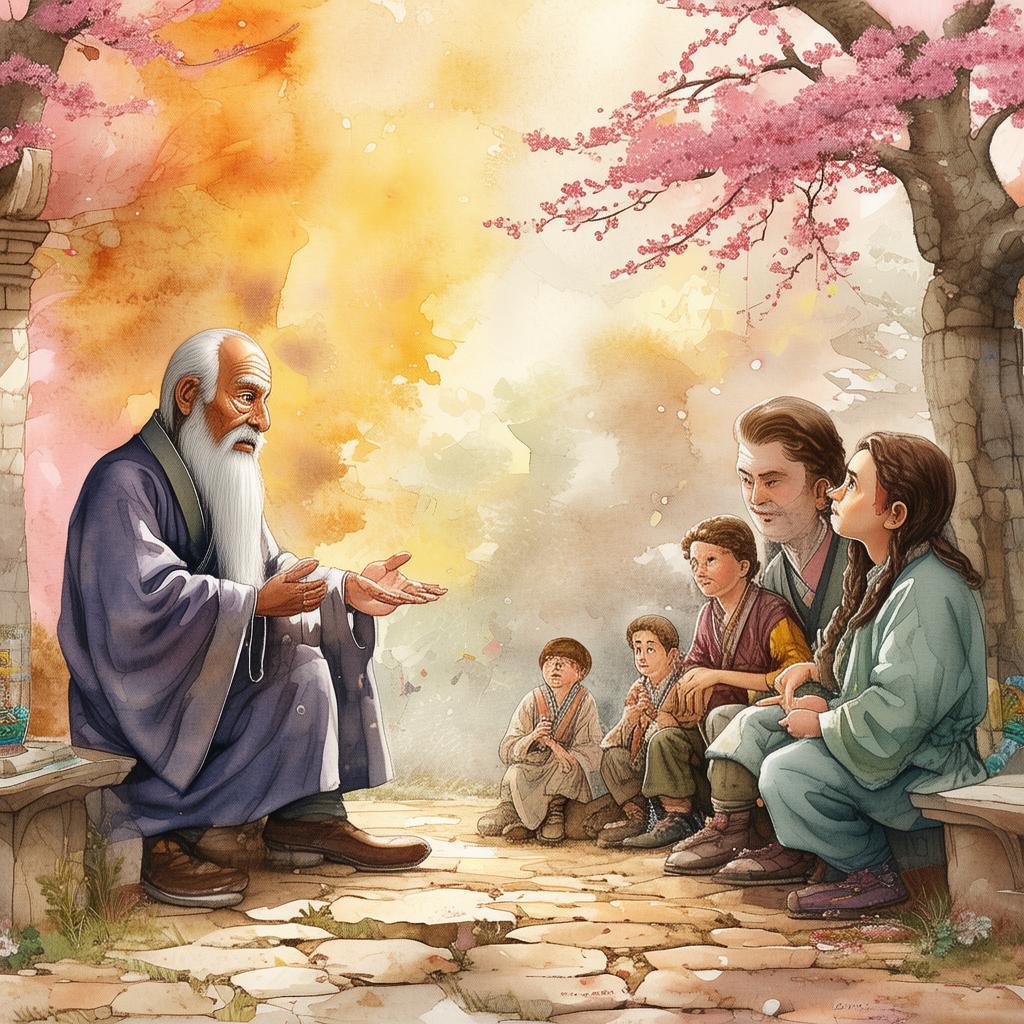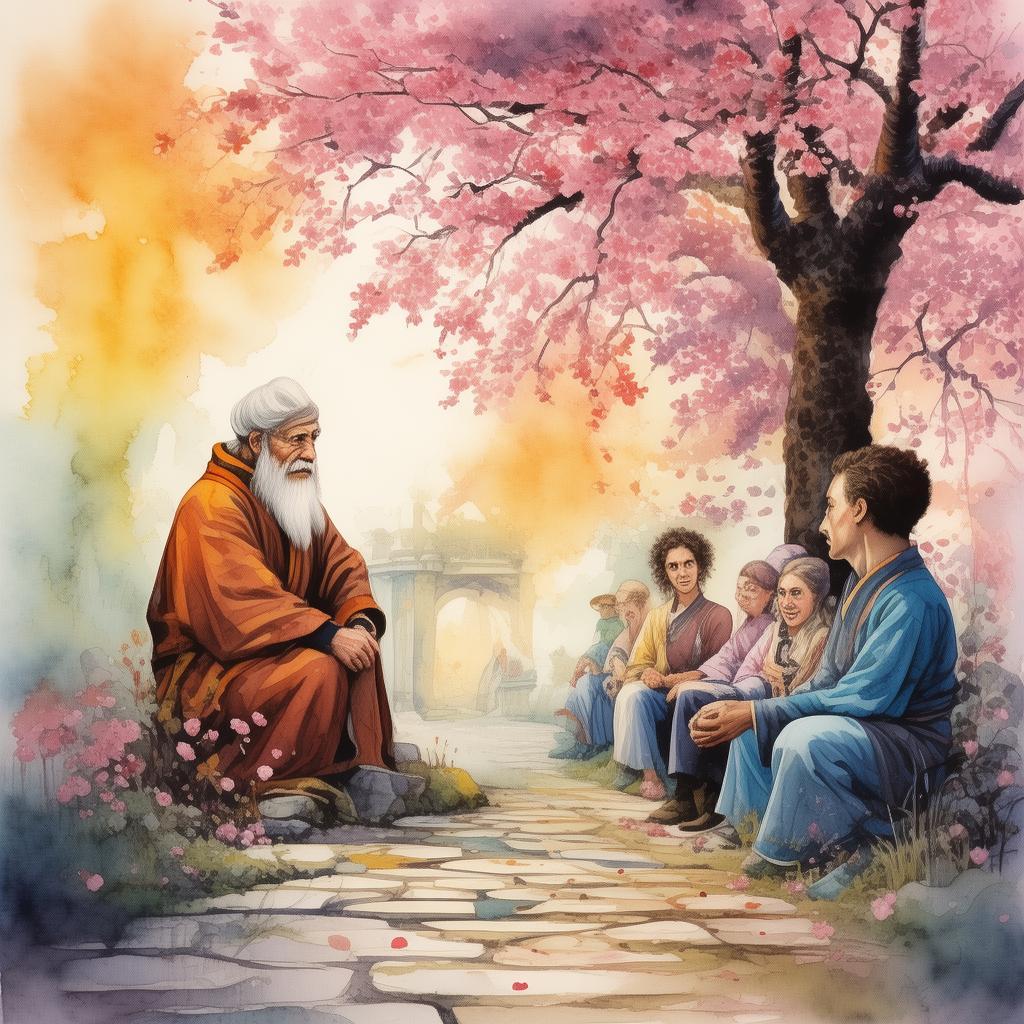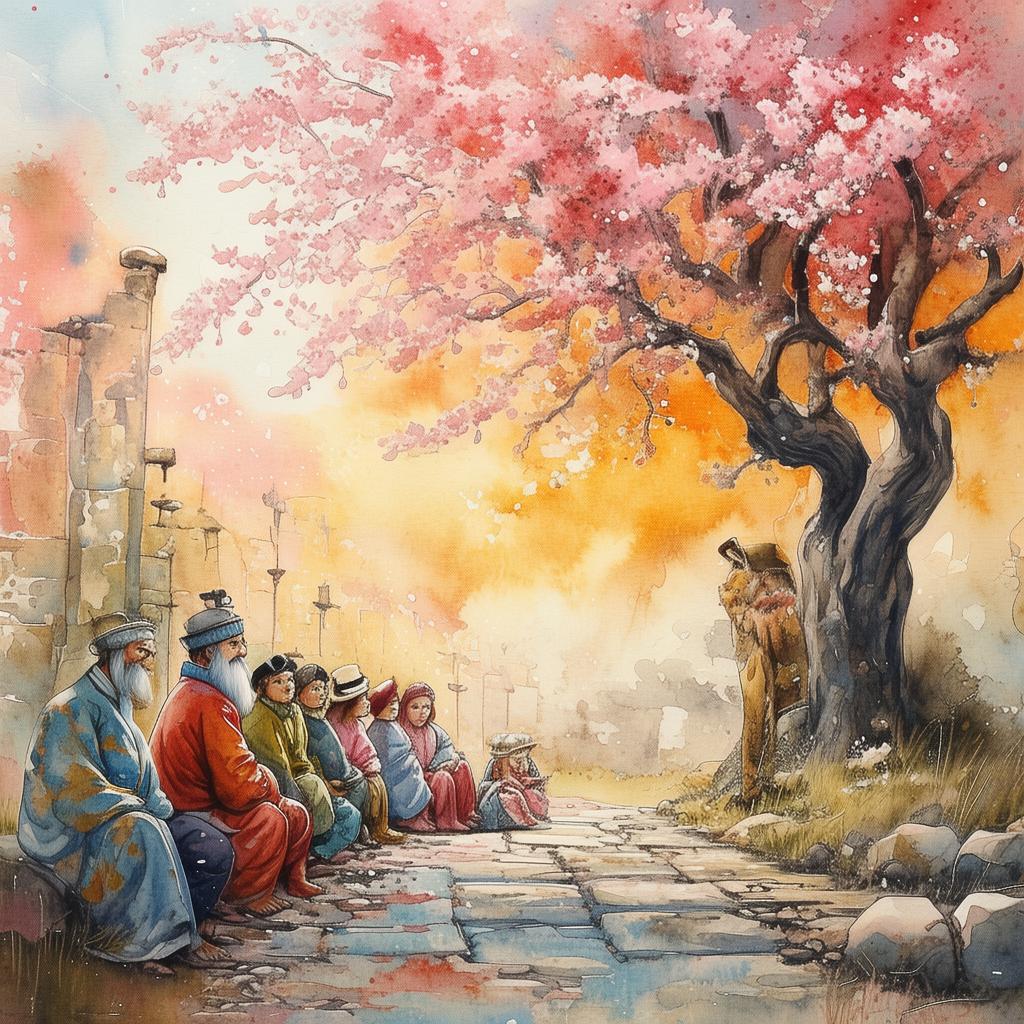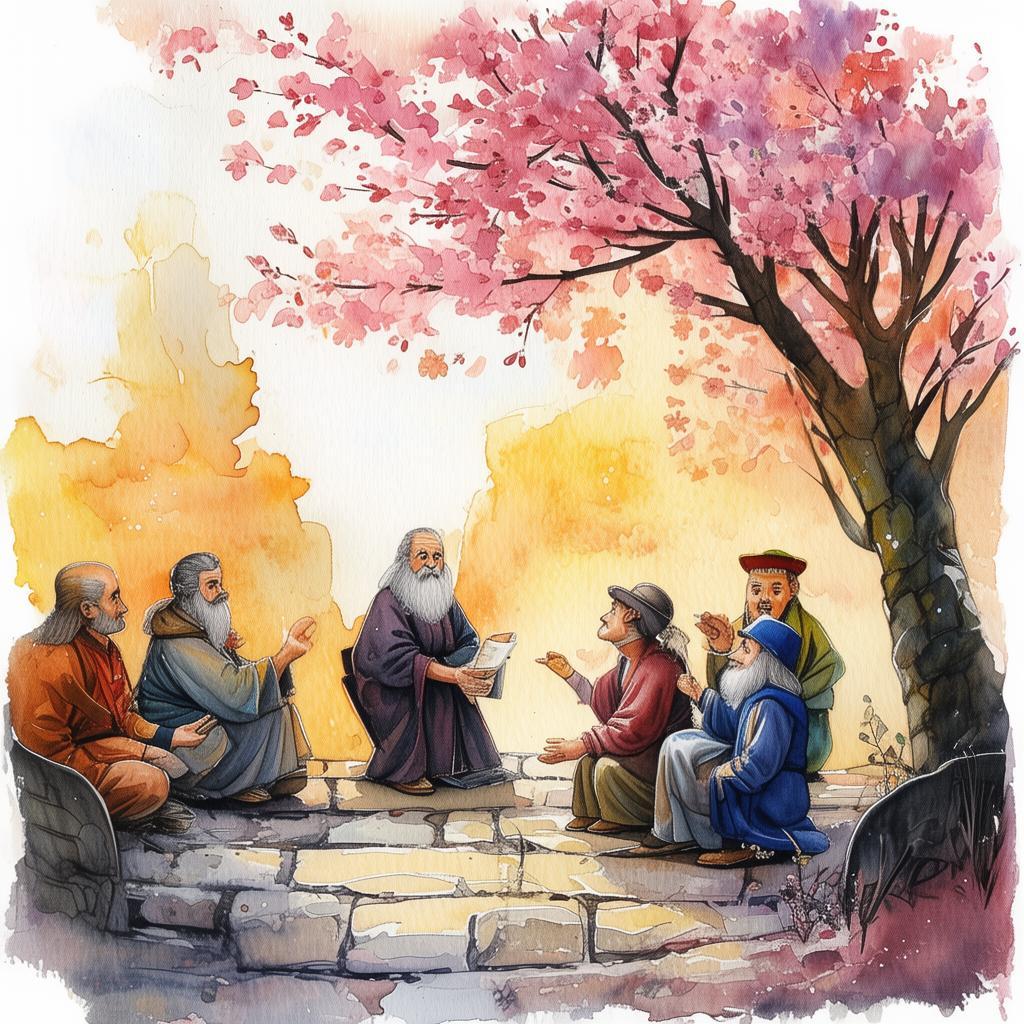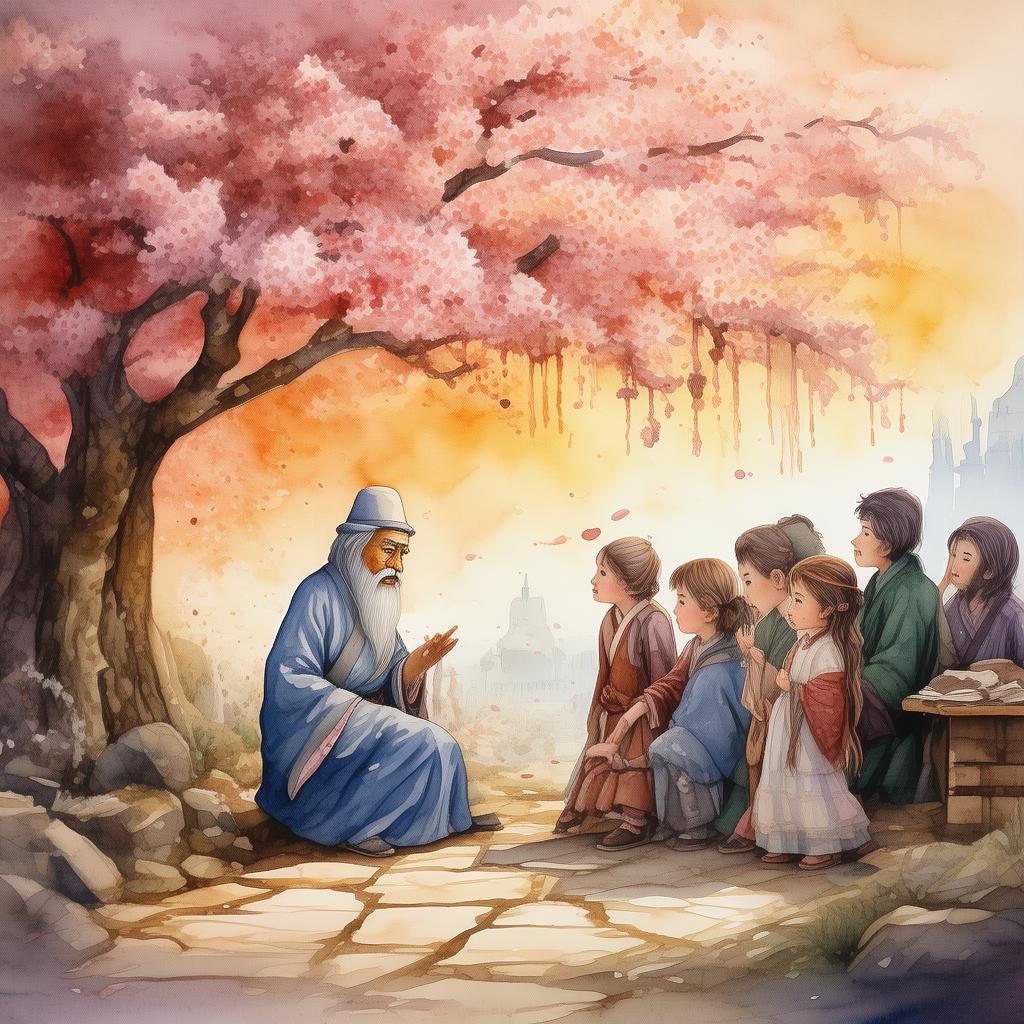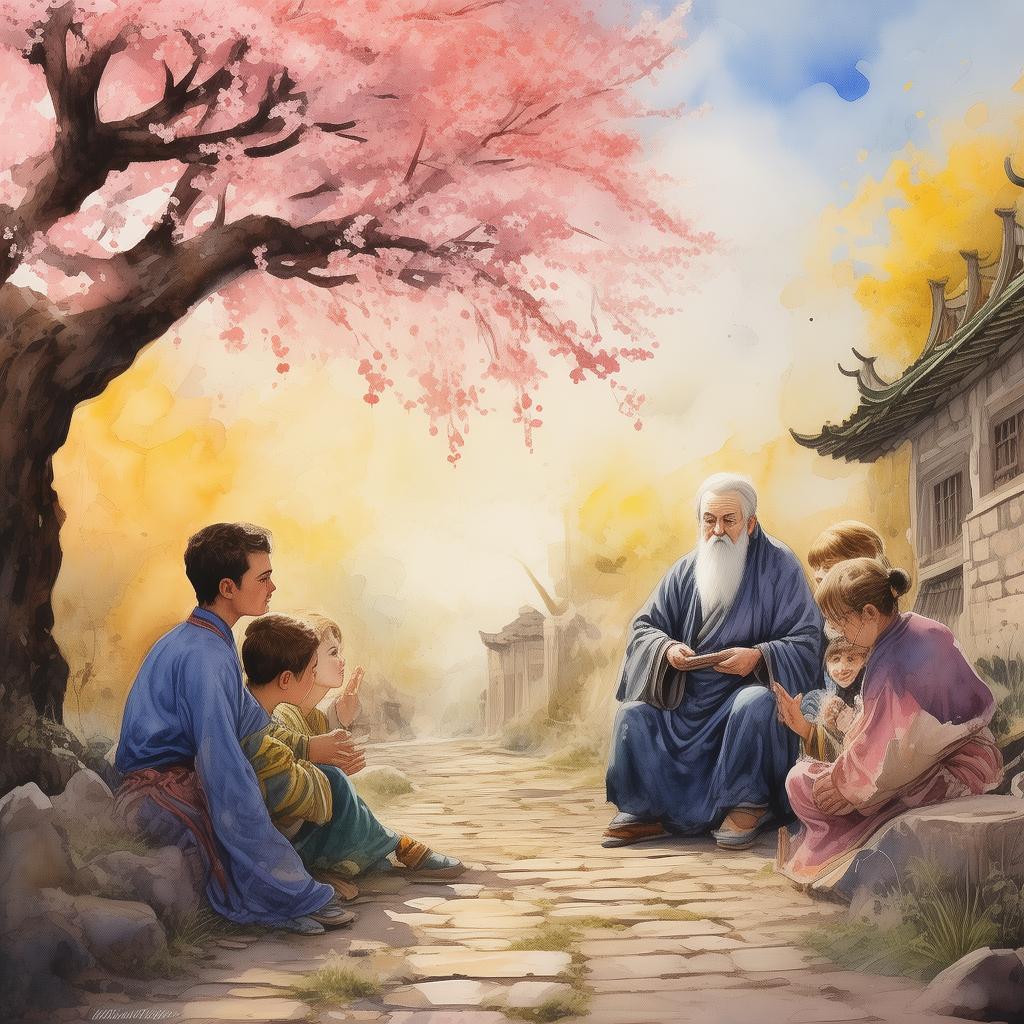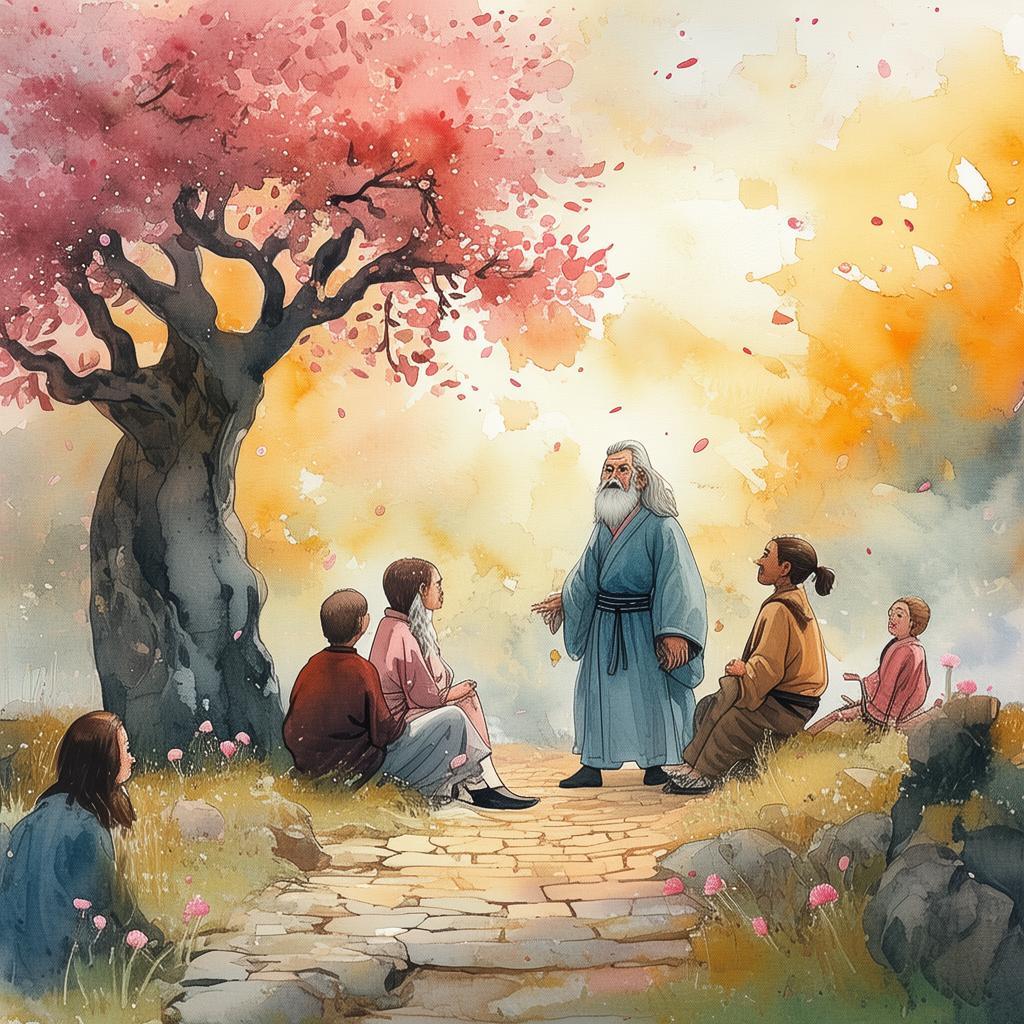The Golden Blissful Paradox: The Labyrinth of Enlightenment
In the heart of ancient China, there was a revered philosopher named Tao, known for his profound wisdom and understanding of the universe. Among his many teachings was a riddle known as The Golden Blissful Paradox, which was said to hold the key to ultimate enlightenment. It read thusly: "The path to the highest wisdom is paved with the greatest ignorance. To attain true bliss, one must first embrace suffering."
Word of this riddle spread far and wide, captivating the minds of the learned and the common folk alike. Two friends, Li and Feng, were both scholars of great intellect, and they were determined to solve this paradox. They believed that understanding it would not only bring them enlightenment but also a deeper understanding of life itself.
The friends set off on a journey to find Tao, who was said to be living in a remote mountain retreat, surrounded by a labyrinth of trials and puzzles. They traveled for days, braving harsh conditions and the dangers that lay along their path.
One day, as they reached the entrance to the labyrinth, a wise old man appeared before them. He greeted them warmly and explained that they had to solve a series of riddles and face various challenges to pass through the labyrinth and reach Tao. "The labyrinth is a reflection of the human mind," he said. "To navigate it, you must understand the paradoxes within."
The first challenge was a simple one: a door that opened only if they answered a riddle correctly. "What is the fastest way to travel across the world?" they were asked. Li pondered for a moment before answering, "The fastest way is to walk. The world is in your heart, and you can travel through it instantly."
The old man nodded in approval, and the door opened to reveal a path that seemed to lead directly into the heart of the labyrinth. As they walked, they encountered a series of paradoxes, each one testing their understanding of Tao's teachings.
One of the most perplexing was a room filled with mirrors. "Find the one that is not a mirror," they were told. They spent hours searching, only to realize that the true answer was that none of the mirrors were different. They were all reflections of themselves, and the true mirror was the one that taught them self-awareness.
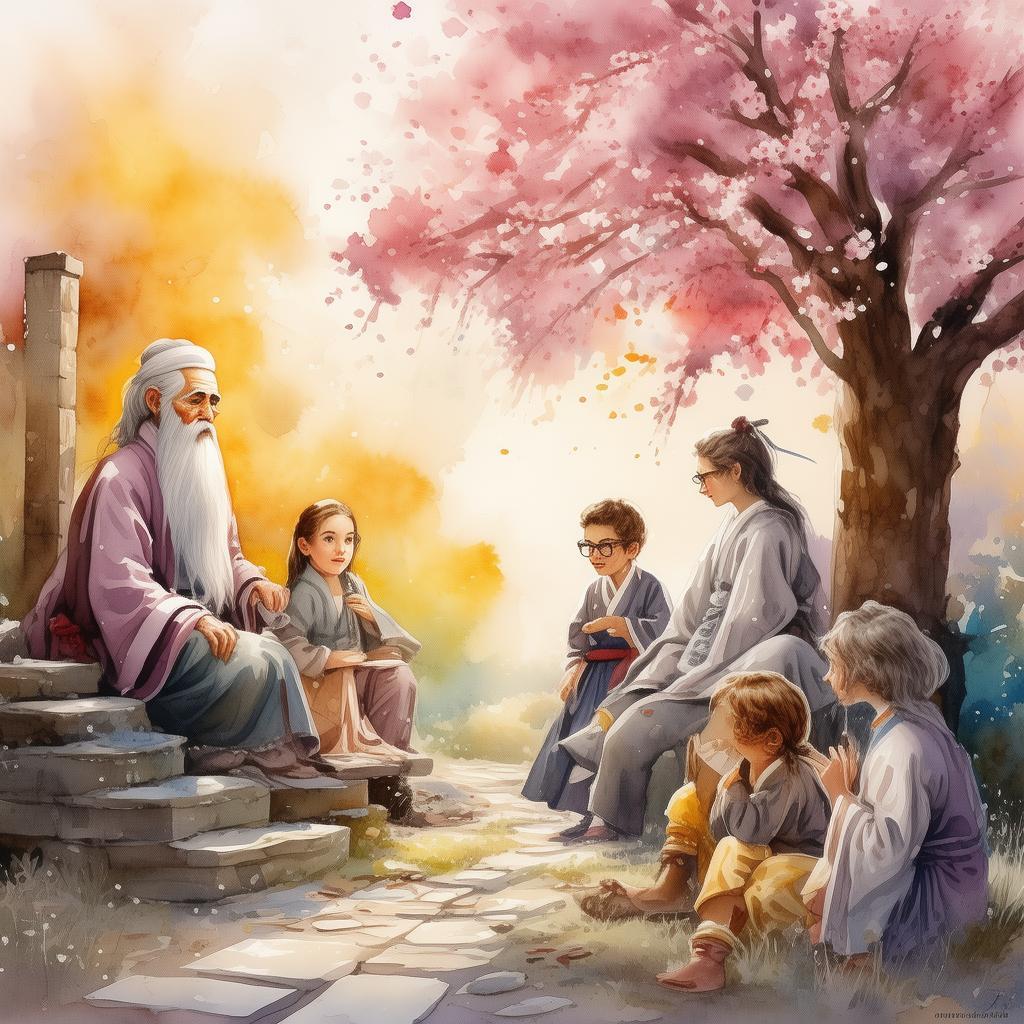
As they continued, they encountered more trials, each one more challenging than the last. They had to embrace suffering, as the paradox dictated, to find the path to enlightenment. They learned to see pain as a teacher, and they began to understand that the suffering they faced was not a burden but an opportunity for growth.
In the end, they reached a room where Tao himself awaited them. "You have come a long way," he said. "The path to enlightenment is indeed paved with the greatest ignorance. You have learned to embrace the paradoxes of life and to find wisdom in the midst of suffering."
Li and Feng realized that the riddle had not been about finding a specific answer, but about the journey itself. It was about the process of learning, the act of facing challenges, and the growth that came from overcoming adversity.
Tao continued, "The path to bliss is not about escaping suffering but about understanding it. It is about seeing the beauty in the world and finding peace within."
With this newfound understanding, Li and Feng left the labyrinth and returned to their lives, forever changed by their experience. They shared their wisdom with others, teaching them that the path to enlightenment was not about seeking happiness but about embracing life's paradoxes and finding joy in the journey.
In the end, The Golden Blissful Paradox was not a riddle to be solved, but a truth to be lived. And for Li and Feng, it was a journey that led not just to enlightenment, but to a deeper understanding of the human condition and the world around them.
✨ Original Statement ✨
All articles published on this website (including but not limited to text, images, videos, and other content) are original or authorized for reposting and are protected by relevant laws. Without the explicit written permission of this website, no individual or organization may copy, modify, repost, or use the content for commercial purposes.
If you need to quote or cooperate, please contact this site for authorization. We reserve the right to pursue legal responsibility for any unauthorized use.
Hereby declared.
